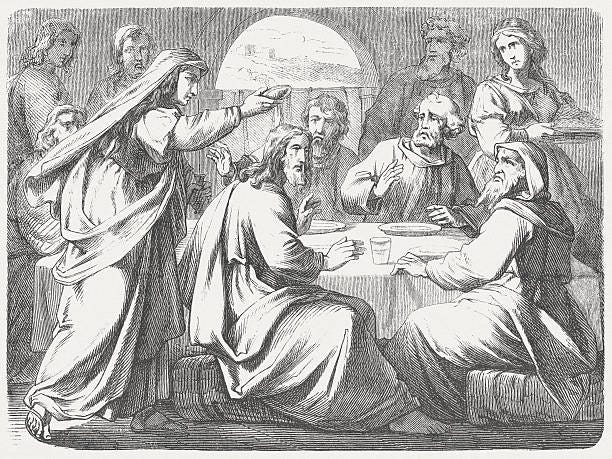In the gospel reading for today (Mark 14:1-11), the evangelist tells of a woman who breaks open a jar of nard, a costly ointment, and proceeds to pour it over Jesus’ head. The disciples are upset, insisting that the jar should have been sold and the generous proceeds distributed to the poor. Surprisingly, Jesus disagrees, telling his followers that the woman is doing him a great service: she is anointing him as if for burial—a foreshadowing of Jesus’ impending death. Just to make sure we get the point the passage ends with Judas Iscariot’s offer of betrayal to the authorities.
I struggle with this narrative. The evangelist explicitly puts a value of 300 denarii on the jar of nard—almost a year’s wages for a typical laborer. Such a sum would help quite a lot of poor people, but Jesus dismisses such concerns: “For you always have the poor with you, and you can show kindness to them whenever you wish; but you will not always have me.” From a narrative viewpoint, I understand what the evangelist is doing: he wants to foreshadow Jesus’ death and impress on the reader Jesus’ majesty by having him anointed with a substance normally reserved for the rich and powerful—kings and potentates. But does this truly justify giving up what could have been done for the poor with that money? I am conflicted.
As a brother in the Franciscan Community of Compassion I made a vow of poverty. Being a third order community that lives dispersed, our vow is not the traditional one of divestment of all possessions, enjoining us instead “… to live in right relationship with all creation. Everything of the earth and everything created by human hands comes from God. As we respect what we are given we work at not being owned by what we own.” In practice, this means I try to live simply, to avoid excess, and to be generous with what I have towards those who have less.
Jesus speaks the truth when he says there will always be those who are poor. Yes, I know there are theoretical socioeconomic models that purport to eliminate poverty—none of these, when tried, have delivered on that promise. But accepting the truth about the poor doesn’t excuse me from Christian charity. Charity, after all, is a word that was once synonymous with love, and the Great Commandment demands that I love all of you as much as Christ loves me.
So here we are. If you were expecting me to wrap this up with a nice “therefore…” bow, I’m sorry to disappoint you. I still struggle with this passage, and I probably always will.




